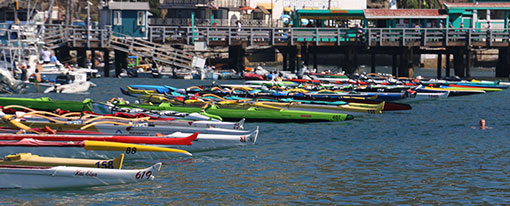Walk Everywhere
Pack a good pair of shoes, because walking is the best way to save money and take in a new destination. Learning and using your destination’s public transit system is another budget game-changer. Consider paying a bit more for centrally located accommodations, as these can turn out to be less expensive than a cheaper room farther afield that necessitates cab rides or train tickets.
Consider Alternate Airports
Where you fly is almost as important as when you fly. Many major cities in the U.S. and abroad are served by alternate airports that are often home to low-cost airlines. If your final destination is somewhere outside of a major city, consider flying to an outlying airport that might even bring you closer to your destination.
Sometimes the best alternate airport is the one you depart from. I live near Boston and regularly search for departures from Manchester, New Hampshire, whenever I’m benchmarking prices to my destination. Often I find better prices from Manchester.
Pack Light
If you can fit everything you need for your trip in a carry-on bag, do it. If you can’t, it’s time to reevaluate what you think you need for your trip. Expert budget travelers save money by skipping checked-bag fees, which can add up quickly on even the most basic itineraries. If you’re flying anywhere in the U.S. on United, Delta, American, and other major carriers, it will cost you a bag fee of $50 round-trip for a single checked bag.
Do Your Research
Knowing where to eat, where to shop, which neighborhoods to visit or stay in, which days you might pay discounted entry fees to parks or museums, and how to navigate your destination are all critical skills of a seasoned budget traveler. It’s not glamorous, but thoroughly researching your destination before you arrive is one of the most important things you can do as a budget traveler. Take advantage of online resources such as the TripAdvisor community forums to learn as much as you can about saving money at your destination.
Travel Off-Peak or Shoulder Season
To really save money on vacation, travel during your destination’s off-season. If summer is the most popular time to visit, go in winter—you’ll save money on everything from flights and accommodations to meals and rental car prices. Of course, there’s a reason the off-season is less popular with tourists, and that often comes down to weather. If that’s a factor in your decision, split the difference and travel during the shoulder season (often during select weeks in the spring and fall) when everything’s still open, the weather’s just on the cusp of turning, and the crowds are noticeably thinner. (We promise, you’ll still save money—just maybe not as much.)
Fly on a Weekday
It’s cheaper to fly on a Tuesday or Wednesday than any other day of the week (unless that Tuesday or Wednesday happens to fall on or near a major travel holiday like Thanksgiving or Memorial Day). Planning a weeklong vacation? Make a habit of taking trips that span Wednesday to Tuesday rather than Monday to Sunday and you’ll find yourself with a much bigger budget to spend at your destination.
Benchmark Prices
One of the most important things you can do as a budget traveler is to recognize a deal when you see one. That’s why benchmarking prices (on accommodations, flights, bundled airfare-hotel vacation packages, etc.) is so important.
Doing it yourself requires patience and persistence—you’ll want to track prices over a period of time to get a sense of what your trip should cost and identify an opportunity to save when a flight or other big-ticket expense goes on sale.

